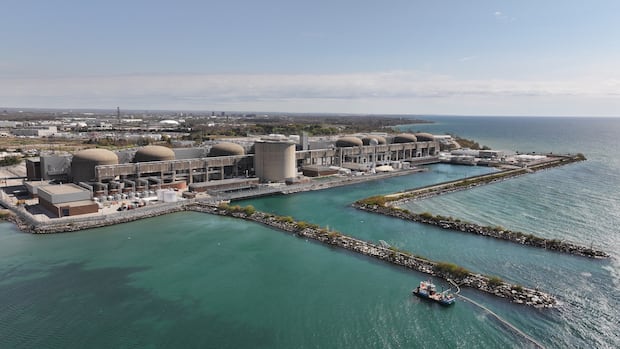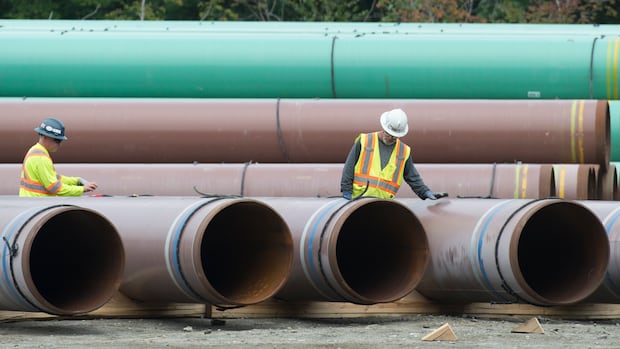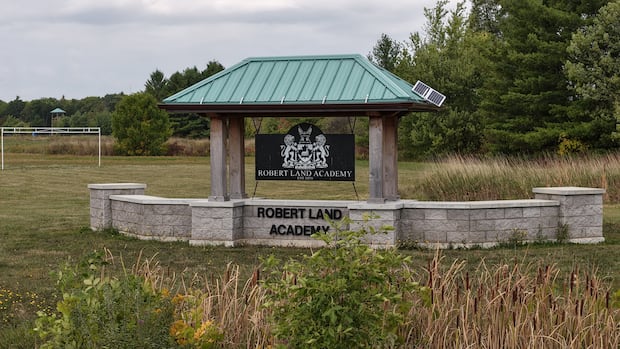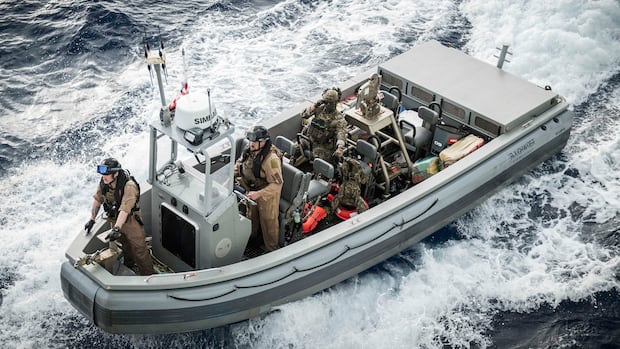While Canada’s labour relations authority has deemed their strike illegal, Air Canada’s flight attendants are staying on the picket line, as their union fights for leverage in a contentious labour dispute with the major airline.
Among the major sticking points are wages and ground pay. The government used a once-obscure labour law to intervene, which some flight attendants say violates their right to strike.
With flights grounded and travel plans thrown into disarray for thousands of Canadians, many people have written to CBC News asking about the dispute — including clarification on recent interactions between the federal government, Air Canada and the Canadian Union of Public Employees. We’ve answered some of those questions here.
What happens to union leaders and workers who defy back-to-work orders?
If the union continues to defy the Canadian Industrial Relations Board (CIRB)’s orders, the government will likely seek court enforcement, and a contempt order against union leadership, said lawyer Sundeep Gokhale, who represents employers in labour disputes. Being found in contempt of court can lead to fines or jail time.
Air Canada will likely quantify what the financial damage is for “every airplane that is supposed to be in the air that is not in the air. It’s an easy math calculation,” said Gokhale, a partner at Sherrard Kuzz LLP in Toronto. The airline will also likely argue that it has suffered reputational damage.
“We’re gonna get into six-digit figures very quickly, which will be millions of dollars within just a couple of days. And so CUPE probably needs to wrap its head around in terms of what the magnitude of the financial penalties could look like,” he said, adding that jail time for leaders is a “real possibility, given the outright defiance.”
Labour experts say it’s unusual and rare for union leaders to defy back-to-work orders. But it happened in 1980, when Jean-Claude Perrot — then the president of the Canada Union of Postal Workers — served a three-month prison sentence for defying federal legislation that ordered striking Canada Post workers back to their jobs.
Mark Hancock, president of the union representing striking Air Canada flight attendants, says there is ‘no limit’ to what he is willing to do to get a fair deal for workers after the federal labour relations board called the strike illegal.
Why is CUPE concerned about the government’s involvement?
The right to strike is an important function of the relationship between workers and employers, says Julia Smith, a labour studies professor at the University of Manitoba in Winnipeg.
“The leverage that employers have in that bargaining relationship is that, of course, they control most of the things about employment, and the leverage that workers have is that they can withdraw their labour power — they can go on strike,” she said.
Smith argues that by invoking Section 107 of the Canada Labour Code, the government “basically undermines the entire system because … you can just be legislated back. It completely removes workers’ leverage and removes any pressure from employers to have to bargain.”
Jobs Minister Patty Hajdu defended her decision to impose binding arbitration, saying in a statement that the strike is “rapidly impacting the Canadian economy” by impeding travel and the movement of critical cargo.
But CUPE leaders have repeatedly said that they want to negotiate a deal directly with Air Canada at the bargaining table — without interference from the federal government, which they have accused of caving to corporate pressure.
“After nine months of Air Canada stonewalling negotiations, the federal government’s decision to take away their right to have a say in their future is simply not something that we are able to support,” said Candace Rennick, CUPE national secretary-treasurer, during a Monday press conference.
Are Air Canada’s flight attendants performing an essential service?
The CIRB has had to decide on several recent occasions whether a type of service — should it be interrupted by a work stoppage — is considered essential enough to put public health and safety at risk.
In March 2024, the CIRB rejected a request by the Maritime Employers Association to designate port work an essential service, which would have prevented 2,100 dockworkers from going on strike in Montreal. The board made a similar call about rail services last summer when CN and CPKC workers were locked out by their employers.
The designation is usually reserved for firefighting or health-care work, which are matters of life and death, said Smith. “The question is — as inconvenient as missing flights are to go on vacation, to visit family, things like that — is that an essential service?” she said.
Smith argues that flight attendants are not essential by that definition. Still, that “should not be used to override their Charter right to engage in strike activity,” she says. “We’ll have to see what the government wants to argue, what the lawyers want to argue.”
How does Air Canada’s pay structure compare to other airlines?
Air Canada has argued that its ground pay structure is consistent with other airlines around the world — though a number of U.S. flight attendant unions have made strides to ensure that employees are at least partly compensated for the work they do on the ground.
But leading the charge on ground pay in North America is Delta Air Lines, whose flight attendants aren’t unionized. Since 2022, those workers have been paid half their hourly rate for a set amount of minutes before boarding.
Toronto-based carrier Porter, a smaller competitor to Air Canada and WestJet, has started paying flight attendants for at least part of the boarding time that they work.
With the Air Canada strike now putting a spotlight on the issue, some experts expect there will be spillover to other Canadian airlines. CUPE’s WestJet component, for example, has said that its members face similar barriers for pre-boarding and deplaning tasks that occur while the plane is grounded. The union will negotiate with the airline when its collective agreement expires at the end of the year.
Front BurnerWhat the Air Canada strike is really about
Up to this point, CUPE has been successful in bringing the issue to the public’s attention, said Gokhale.
“But now they’re going to have to argue it through the arbitration realm to try and convince an arbitrator or board of arbitrators that this is what is reasonable, given the context of the work that flight attendants perform.”







